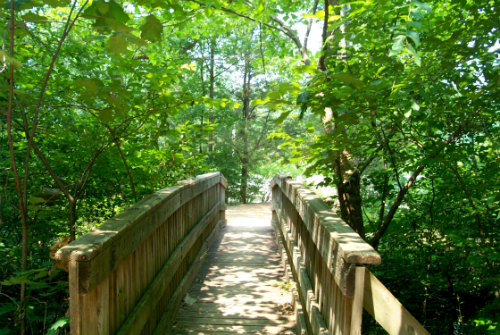Raleigh’s Parks and Recreation Department is in the beginning stages of what they’re calling a new system plan to set a 20-year roadmap to revamp and update city parks.
During the two-year process, city staff will prioritize specific areas of the park system. Parks and Rec staff identified unpaved nature trails, picnic areas, bicycle lanes, and small neighborhood parks as high priorities. Other facilities, such as soccer fields and basketball courts, are categorized as low priority.
In an Oct. 11 meeting, Lora Greco, Raleigh’s city parks planner, presented the plan to the Raleigh Transit Authority. Her presentation emphasized the project’s commitment to community outreach.
“One of the things we’re working on is to develop participation,” Greco said. “The ultimate goal is to be transparent. We can do this with community workshops, surveys, an interactive website and other methods.”
Project team members hope the website yourparksyourfuture.com will serve as a bridge between them and the community.
“This website will focus on public engagement and creating community conversations around what citizens want, priorities and overall, where Parks and Recreation should go over the next 20 years,” Bentley said.
[media-credit name=”Photo by City of Raleigh” align=”aligncenter” width=”500″] [/media-credit]
[/media-credit]
Stephen Bentley, the Capital Improvement Program Manager, said there are several reasons the city staff decided to revamp the parks plan now.
“The City of Raleigh’s population and other demographics have overall dynamically grown and changed significantly over the last decade,” he said. “Overall a city should update its Parks and Recreation System Plan every five to 10 years, and given the growth and changes in Raleigh, the Council supported this update.”
The planning project is divided into five phases. The first phase of the project, which analyzes the current park and greenway system, will come to a close at the end of this year.
Phase two, which focuses on assessing the community’s needs, began this month and ends in February 2013. The third and fourth phases center on the application of the proposed ideas, and will end on August 2013.
Greco said she hopes to present the final plan to City Council in January 2014.
